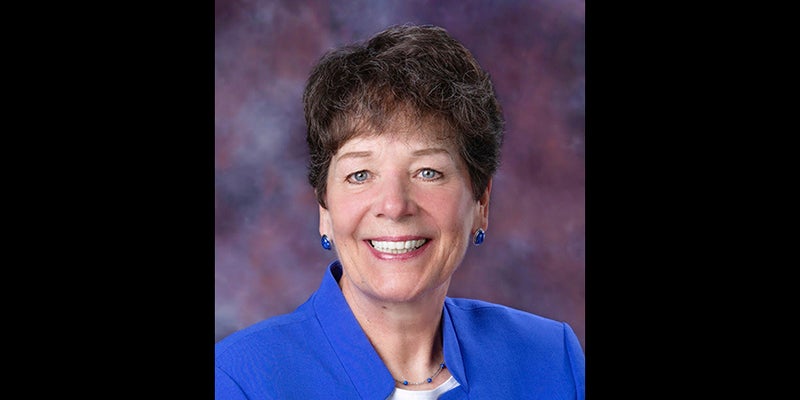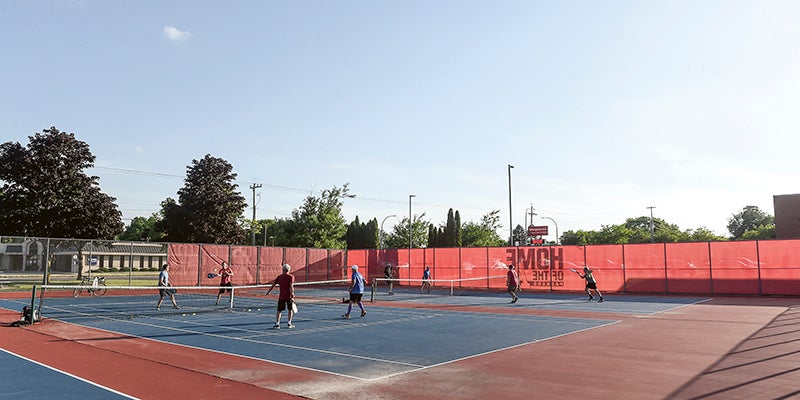Five tips for talking to kids about climate change
Published 8:49 am Friday, September 20, 2019

- The Kids Climate March joins up with the March for Science in April 2017 in St. Paul. Teaching and talking about climate change can be scary, overwhelming and politically controversial. But it doesn’t have to be. Matthew Hintz/MPR News 2017
By Elizabeth Shockman
MPR News/90.1 FM
Learning about climate change can be overwhelming, even for adults. But Cathy Jordan said it doesn’t have to be. She’s an associate director at the University of Minnesota’s Institute on the Environment, and according to her, parents and educators should focus on accuracy, empathy and an appreciation for the environment.
Give kids a love for the environment
Appreciating and connecting to nature is something parents and teachers can encourage, no matter how old their kids and students are.
“No one is going to care about these sorts of issues unless they feel a personal connection to the natural world, to our earth,” Jordan said. “That can happen at any age, but we certainly have a window of opportunity in childhood to connect our children in meaningful ways to the natural environment.”
Jordan also said getting outside could include camping or visits to state and national parks, but it doesn’t have to be that big of an event. Just spending time in the backyard, walking to a park or letting kids grow a container garden is a good start.
Focus on hope and practical steps
Talking about climate change can be scary and despair-inducing for both kids and adults. Jordan encourages parents to focus on hope and on practical ways kids can be involved in caring for the environment.
“It is important to focus on the truth, but in language that is appropriate for that child’s stage of development, that they can understand. And language that is going to manage their concern or outright anxiety… And that gives them a way to act,” Jordan said. “That act piece is really important, because what we want to do is focus on hope and focus on solutions and how children can contribute in any way or at any age in age-appropriate ways.”
For younger children, acting might involve a focus on the home: teaching them to recycle or turn off lights when they’re not using them, for example.
Older students are capable of more involvement in their community, whether that’s joining classmates in something like Friday’s youth climate strike being held across the world, or donating their allowance to an organization doing work they care about.
Teach empathy for the environment, but also for people who disagree with you
Talking to kids about climate change is not only an opportunity to talk about science; it’s also a chance to teach important skills for functioning in a healthy democracy.
“Just like we want them to have empathy for the natural world by giving them experiences in nature, we want them to have empathy for other people in the world who’ve had different experiences, and have different concerns and priorities, by being emphatic and respectful and we probably can come up with more creative ideas together than if we retreat to our corners,” Jordan said.
Give kids agency
When it comes to talking about big, scary problems like climate change, Jordan says it’s important to give students a chance to do something about it. Perhaps even more importantly, she says adults need input from kids.
“Instilling in children the idea that they do have agency is important here,” Jordan said. “Being able to take effective action is one of the best antidotes to feeling anxious about something or helpless … (and) young people can have great, creative ideas that sometimes adults don’t necessarily think about.”
Should kids go to the climate strike?
Jordan says attending the strike is a great opportunity for age-appropriate students to take action and learn.
“As parents and educators, we ought to be doing everything we can to support them,” Jordan said. “Schools can support deepening that learning by integrating something like supporting the kids going on Friday back into the school day, where they can provide time for reflection and extend this to their academic studies.”





